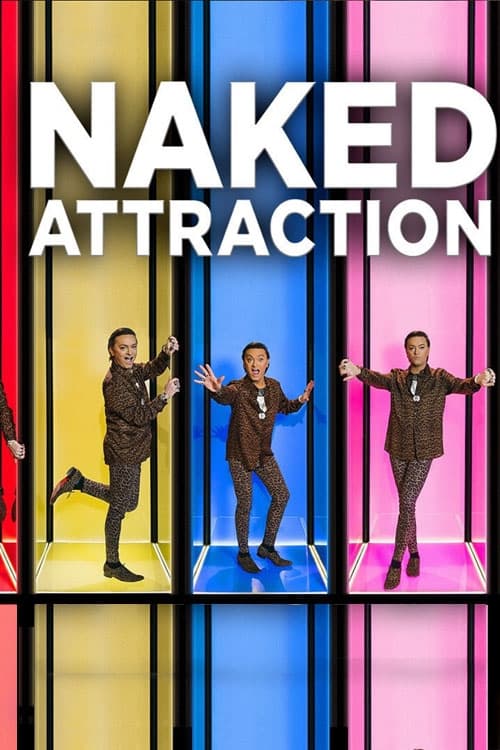
Ask Your Own Question
What is the plot?
In Episode 26 of Season 4 of "Lenßen übernimmt," the episode opens with a tense atmosphere in the office of Lenßen, where he is reviewing a case file. The camera pans over the documents, revealing a complex situation involving a missing person, which immediately captures Lenßen's attention. He is determined to uncover the truth behind the disappearance of a young woman named Clara, who has been missing for several days. Lenßen's expression is serious, reflecting his commitment to finding Clara and bringing her home safely.
As Lenßen begins his investigation, he interviews Clara's family, who are visibly distraught. The mother, in particular, is emotional, expressing her fears and desperation. Lenßen listens intently, taking notes and asking probing questions to gather as much information as possible. The family reveals that Clara had been acting strangely in the days leading up to her disappearance, hinting at possible involvement with a new group of friends. This revelation piques Lenßen's interest, and he decides to follow this lead.
Next, Lenßen visits the local hangout where Clara was last seen. The scene is bustling with young people, laughter, and music, creating a stark contrast to the somber mood of Clara's family. Lenßen approaches a group of Clara's friends, who are hesitant to speak at first. He uses his charm and authority to gain their trust, eventually learning that Clara had been involved with a mysterious figure named Max, who is known for his reckless behavior. The friends describe Max as charismatic but dangerous, and Lenßen's concern deepens as he realizes that Clara may have been drawn into a risky situation.
Lenßen decides to track down Max, leading him to a rundown part of town. The atmosphere shifts as the surroundings become darker and more foreboding. Lenßen's determination is palpable as he navigates through the streets, questioning locals about Max's whereabouts. After several dead ends, he finally finds a lead that directs him to an abandoned warehouse. The tension builds as Lenßen approaches the warehouse, knowing that he may be walking into a dangerous situation.
Inside the warehouse, Lenßen discovers a group of young people gathered around Max, who is in the middle of a heated argument with another individual. The confrontation escalates quickly, and Lenßen steps in, asserting his authority as he demands to know where Clara is. Max, initially defiant, becomes agitated and defensive, leading to a physical altercation. Lenßen and Max engage in a struggle, with Lenßen using his training to subdue Max without causing serious harm. The other young people watch in shock, unsure of how to react.
After gaining control of the situation, Lenßen interrogates Max about Clara's whereabouts. Max, realizing he is cornered, reluctantly reveals that Clara had left with him willingly but had since changed her mind about their relationship. He claims that she is safe but refuses to disclose her location. Lenßen, frustrated but undeterred, decides to take Max into custody for further questioning, believing that he knows more than he is letting on.
The scene shifts back to Lenßen's office, where he is piecing together the information he has gathered. He feels a mix of urgency and determination, knowing that time is of the essence in finding Clara. Lenßen reaches out to his team, coordinating efforts to locate Clara based on the new information about her last known whereabouts. The atmosphere in the office is charged with a sense of purpose as everyone rallies together to support Lenßen's mission.
As the investigation unfolds, Lenßen receives a tip from an anonymous source, leading him to a secluded location outside the city. The tension mounts as he drives to the site, his mind racing with possibilities. Upon arrival, he finds Clara tied up and frightened but unharmed. The relief washes over him as he quickly frees her, reassuring her that she is safe now. Clara, overwhelmed with emotion, explains that she had been manipulated by Max and felt trapped in a situation she couldn't escape.
The episode concludes with Lenßen escorting Clara back to her family, where an emotional reunion takes place. The joy and relief on the faces of Clara's family members are palpable, contrasting sharply with the earlier despair. Lenßen stands back, watching the scene unfold, feeling a sense of fulfillment in having completed his mission. The camera lingers on his expression, capturing the weight of the case and the satisfaction of having made a difference in someone's life.
Related Titles
Browse All Titles →
What is the ending?
In the ending of "Lenßen übernimmt," Season 4, Episode 26, the main characters confront the consequences of their actions throughout the season. The episode culminates in a tense showdown where personal motivations clash with the pursuit of justice. Ultimately, the resolution leads to a sense of closure for some characters while leaving others grappling with unresolved issues.
As the episode unfolds, the tension builds in a series of pivotal scenes.
The first scene opens in Lenßen's office, where he is reviewing case files. The atmosphere is thick with anticipation as he prepares for a confrontation that has been brewing throughout the season. His determination is palpable; he knows that the stakes are high, and the outcome will affect not just him but everyone involved.
Next, we transition to a dimly lit warehouse where the antagonist, a cunning figure who has been manipulating events from the shadows, is meeting with his associates. The camera captures the flickering lights and the nervous energy in the room. The antagonist's motivations are clear: power and control. He believes he can outsmart Lenßen, but there is an underlying tension as his associates express doubt about their plan.
Back at Lenßen's office, he gathers his team, including his loyal assistant, who is visibly anxious but resolute. They discuss their strategy, highlighting the emotional stakes for each character. Lenßen's assistant reveals her personal connection to the case, which adds depth to her commitment. The camaraderie among the team is evident, showcasing their shared purpose and the bonds they have formed.
The scene shifts back to the warehouse, where the antagonist's plan begins to unravel. Lenßen and his team arrive, leading to a dramatic confrontation. The lighting is stark, casting long shadows that symbolize the moral complexities of the situation. Lenßen stands firm, embodying the principles of justice and integrity, while the antagonist tries to manipulate the narrative to his advantage.
As the confrontation escalates, emotions run high. Lenßen's team rallies around him, showcasing their loyalty and determination. The dialogue is sharp, filled with tension as accusations fly and truths are revealed. The antagonist's facade begins to crack, revealing his desperation and fear.
In the climax of the episode, a physical altercation ensues, underscoring the high stakes of the confrontation. Lenßen's resolve is tested, but he remains focused on achieving justice. The scene is intense, with close-ups capturing the characters' expressions--fear, anger, and determination.
As the dust settles, the resolution unfolds. The antagonist is apprehended, and Lenßen's team breathes a collective sigh of relief. However, the victory is bittersweet. Lenßen reflects on the cost of their success, acknowledging the emotional toll it has taken on everyone involved. His assistant, though relieved, grapples with her own feelings of loss and uncertainty about the future.
The episode concludes with Lenßen standing alone in his office, looking out the window. The city lights twinkle in the distance, symbolizing hope and the possibility of new beginnings. Yet, there is a lingering sense of unresolved tension, hinting at the complexities of justice and the personal sacrifices made along the way.
In summary, the fates of the main characters are intertwined with the themes of justice, loyalty, and the emotional weight of their choices. Lenßen emerges as a steadfast figure, committed to his principles, while his assistant faces her own journey of self-discovery. The antagonist, once a powerful manipulator, is left to confront the consequences of his actions, serving as a reminder of the fragile nature of power and control.
Is there a post-credit scene?
In "Episode 26" of "Lenßen übernimmt," there is indeed a post-credit scene that adds an intriguing layer to the episode's conclusion.
As the credits roll, the screen fades back in to a dimly lit office where Lenßen is seen sitting at his desk, a stack of case files piled high beside him. The atmosphere is tense, with shadows dancing across the walls, hinting at the weight of unresolved issues. Lenßen, visibly fatigued yet determined, flips through the files, his brow furrowed in concentration.
Suddenly, the door creaks open, and a familiar figure steps in--his assistant, who carries an air of urgency. She hands him a new file, her expression a mix of concern and excitement. "You need to see this," she says, her voice barely above a whisper.
Lenßen takes the file, his curiosity piqued. As he opens it, the camera zooms in on his face, capturing the flicker of realization and intrigue in his eyes. The scene cuts to a close-up of the file's contents, revealing a photograph of a mysterious individual linked to a case that has been hinted at throughout the season.
The tension builds as Lenßen leans back in his chair, a determined smile creeping onto his face. "Looks like we have a new challenge ahead," he murmurs, his voice filled with a mix of excitement and resolve. The screen fades to black, leaving viewers with a sense of anticipation for what lies ahead in the next season.
This post-credit scene effectively sets the stage for future developments, showcasing Lenßen's relentless pursuit of justice and the complexities of the cases he tackles.
How does Lenßen's approach to solving the case differ from his colleagues?
Lenßen employs a more intuitive and emotional approach, often relying on his gut feelings and personal connections with the witnesses, contrasting with his colleagues who focus on hard evidence and procedural methods.
Which character serves as Lenßen's primary ally in this episode, and what role do they play?
Lenßen's primary ally in this episode is his assistant, who provides crucial support by gathering information and helping to piece together the timeline of events, while also offering emotional support to Lenßen as he navigates the case.
What internal conflict does Lenßen face while investigating the case?
Throughout the investigation, Lenßen grapples with his own past experiences that resonate with the victim's situation, causing him to question his own decisions and the impact of his work on people's lives.
What specific case does Lenßen take on in Episode 26?
In Episode 26, Lenßen takes on a complex case involving a missing person, which leads him to uncover a web of deceit and betrayal among the people closest to the victim.
What significant revelation occurs towards the climax of Episode 26?
Towards the climax, a significant revelation occurs when Lenßen discovers that the missing person had been involved in illegal activities, which complicates the investigation and forces him to confront the moral implications of his findings.
Is this family friendly?
"Lenßen übernimmt," season 4, episode 26, contains several elements that may be considered objectionable or upsetting for children or sensitive viewers.
-
Conflict and Tension: The episode features intense interpersonal conflicts that may evoke strong emotions, including anger and frustration, which could be unsettling for younger audiences.
-
Legal and Ethical Dilemmas: The storyline revolves around legal issues that may be complex and difficult for children to understand, potentially leading to confusion or anxiety about justice and morality.
-
Emotional Struggles: Characters experience significant emotional turmoil, including feelings of betrayal, sadness, and desperation, which may resonate deeply and be distressing for sensitive viewers.
-
Confrontational Scenes: There are moments of confrontation that may include raised voices or aggressive body language, which could be alarming for younger viewers.
-
Themes of Deception: The plot may involve themes of deceit and manipulation, which could be troubling for children who are still developing their understanding of trust and honesty.
These aspects may require parental guidance to help contextualize the content for younger viewers.



















